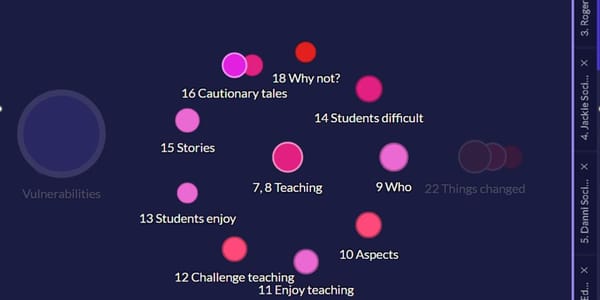Qualitative research often follows a linear process, particularly if you only look at the output at the end. Most qualitative papers follow the same structure of 'introduction, method, results, conclusion'. But the research process is often messier and less linear than this would imply (we provide an example
